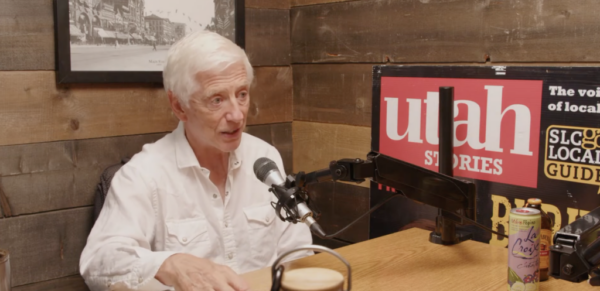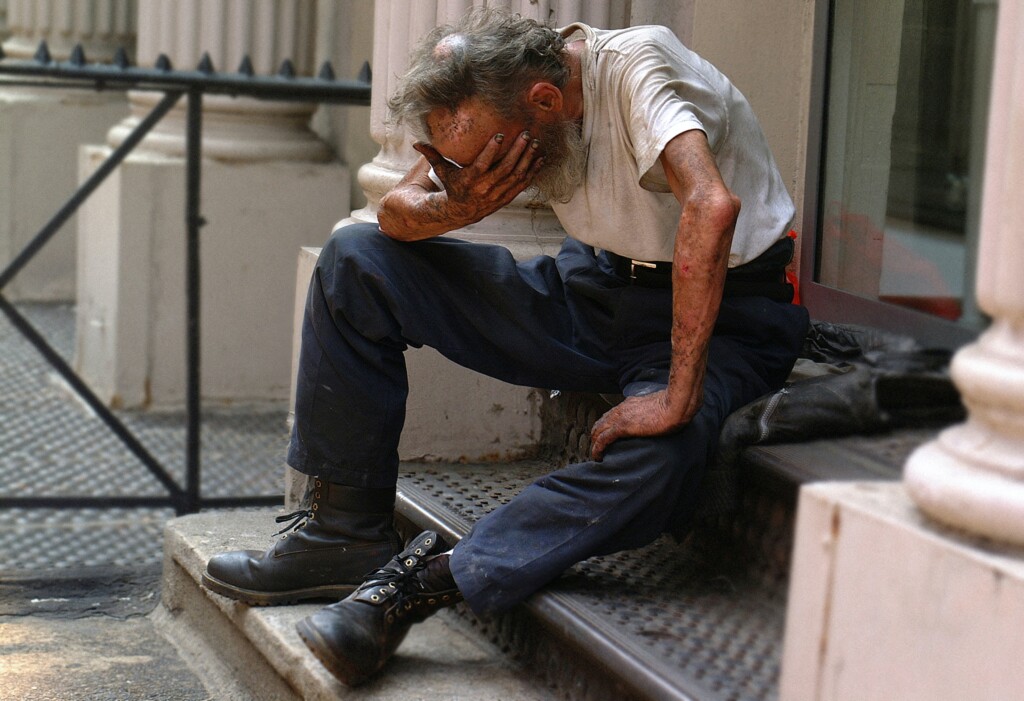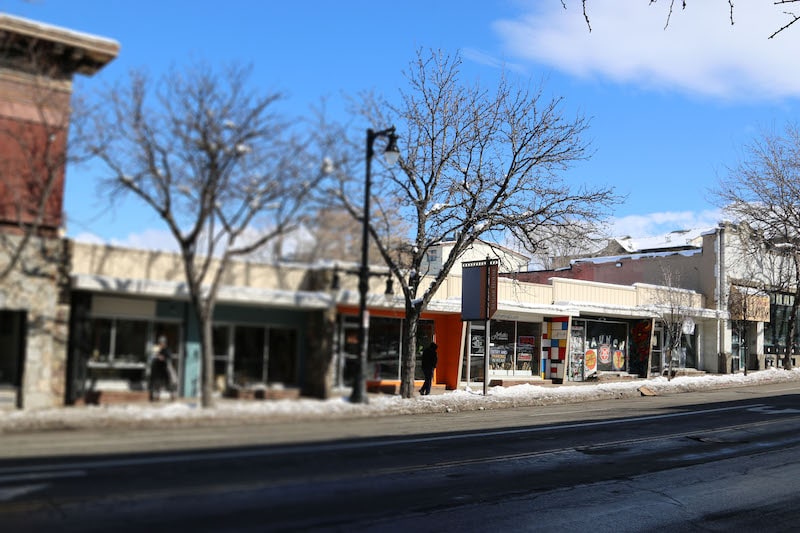According to the most recent Salt Lake City crime CompStat report, overall crime in Salt Lake is down by nearly 13%. This statistic seems at odds with what the personal testimony of small business owners in downtown Salt Lake City have said. They report that overall crime is worse than it has ever been in terms of property damage, drugs and homeless day camping, loitering and rude behavior have been escalating all summer.
According to small business owners, in the Ballpark district and in downtown Salt Lake City property crimes against their businesses are worse than ever. Rocky Anderson was a guest on the Utah Stories podcast last Friday, to discuss the paradox of the stats not aligning with business owners and resident’s perceptions.
Anderson has spoken to many business owners who are experiencing major problems due to the growing homeless population committing crimes. These crimes include public masturbation, assault, and property damage. Business owners say that police arrive and are ordered by the Mayor to tell the business owner to ask the homeless people to move along. “We can’t arrest our way out of these problems. We can’t continue to believe that locking up more people in jail is going to solve this problem” repeats both the Mayor Erin Mendenhall and Chief of Police Mike Brown as well as Salt Lake County District Attorney Sim Gill.
Anderson counters this sentiment and says: “I’m not looking for people, especially if they’re mentally ill or drug addicted, to face a lot of punishment or retribution. I’m looking for them to be brought into the system and get some help,” Anderson said.
Anderson adds that he wants mentally ill people off the streets so they can alleviate their own suffering, find shelter and receive care. Currently there are dozens of severely mentally ill homeless people walking the streets of Salt Lake City, who are clearly schizophrenic– ranting to invisible people and often hurting the ability for small businesses to offer a safe environment for their customers.
Anderson says “There was a man who had a mental illness right in front of my law office, on 3rd South and Main. I took him under my wing, he’d sleep on that sidewalk through the most bitter cold nights and sweltering summers. I gained his trust, I’d buy him Jimmy Johns everyday. Overtime he knew he could trust me and I got him into an apartment.”
Regarding the data that crime is down in Salt Lake City, Anderson is skeptical of the veracity of this data. This is because of a common phrase that he is hearing business owners are told to say when homeless people are causing damage or committing crime, they are instructed by the police to “Please move along now.” This was the phrase that the police told the owner of MidCity Salon to use after a man stood in front of their hair salon window and publicly masturbated. The man was not issued a citation, and after exposing himself and masturbating for more than ten minutes in front of the salon window.

Property crimes are very often going unreported or underreported as well. According to two local business owners Anderson and Markosian have spoken to, they have had windows smashed and these crimes are not being reported; nor are investigations for property crimes being investigated– despite owners knowing who the perpetrator is, because these criminals are very often mentally ill.
Markosian spoke to Salt Lake County District Attorney Sim Gill recently and he found from the conversation that many perpetrators and felons are not receiving significant prison or jail time because the criminals are not “mentally competent” to stand trial. This has produced a revolving door, where criminals spend little or no time behind bars for their offenses and are released.
However, according to Anderson, if a person is mentally incompetent and they are going around committing crimes and/or assaulting people on the street, this person should be “pink slipped” AKA involuntarily committed to a mental institution. Why isn’t this occurring?
We still have yet to ask Salt Lake County District Attorney Sim Gill why this isn’t occurring on a more frequent basis [We would love to ask the County leaders this question]. Mr. Gill told Marksosian that the reason why approximately twenty Salt Lake City and Salt Lake County leaders including Mayor Mendenhall, all of her close associates as well as Police Chief Mike Brown and County leaders went and visited Miami Beach Florida in December was to find better solutions to handle the mental health crisis in Salt Lake City. “We organized this trip so that we could all get on the same page with what needs to be done,” Gill said.
Salt Lake County District Attorney Sim Gill agreed in person to come on the Utah Stories podcast to present his mental health findings from the palm tree and ocean views of Miami Beach, but so far he has not scheduled a time to come on the program; nor has any city official agreed to answer questions pertaining to the middle-of-winter-excursion to Miami Beach last winter in the midst of the worst homeless crisis in Utah’s history, where at least 15 people died on the streets.
Editor’s Note: We corrected a few typographical errors on Monday August 14th, 2023 at 4:52 p.m.






